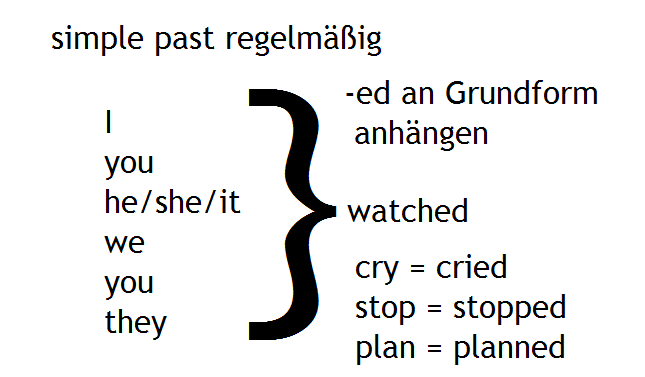simple past – regular verbs
Formation and practial application
Regular verbs are put into simple past by simply adding
the ending -ed to the infinitive.
The simple past relates to an action in the past which is over and has no connection to the present.
Of course, there are also some exceptions:
► mute -e is omitted before -ed:
| arrive | live | phone |
| arrived | lived | phoned |
► After a consonant -y+ed turns into-ied:
| carry | study | worry |
| carried | studied | worried |
► Some verbs double the final consonant
| stop | slam | plan |
| stopped | slammed | planned |
► be ist completely irregluar:
| I/he/she/it | was |
| we/you/they | were |
negation
Das simple past nagates using the auxiliary do in its past tense, did, and
not. The short form is accordingly: didn’t.
| I/you/he/she/it we/you/they | didn't did not | drink. |
question:
The question in the simple past puts the auxiliary did to the beginning of the sentence.(inversion)
| Did | I/you/he/she/it we/you/they | drink? |

